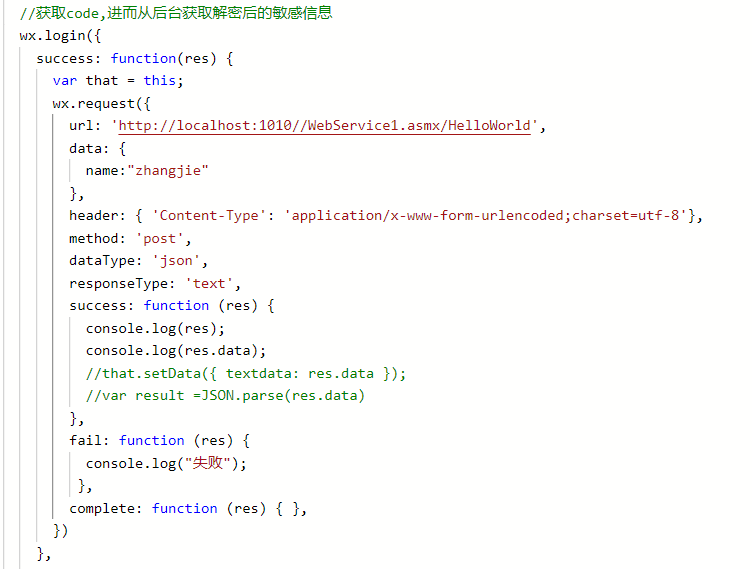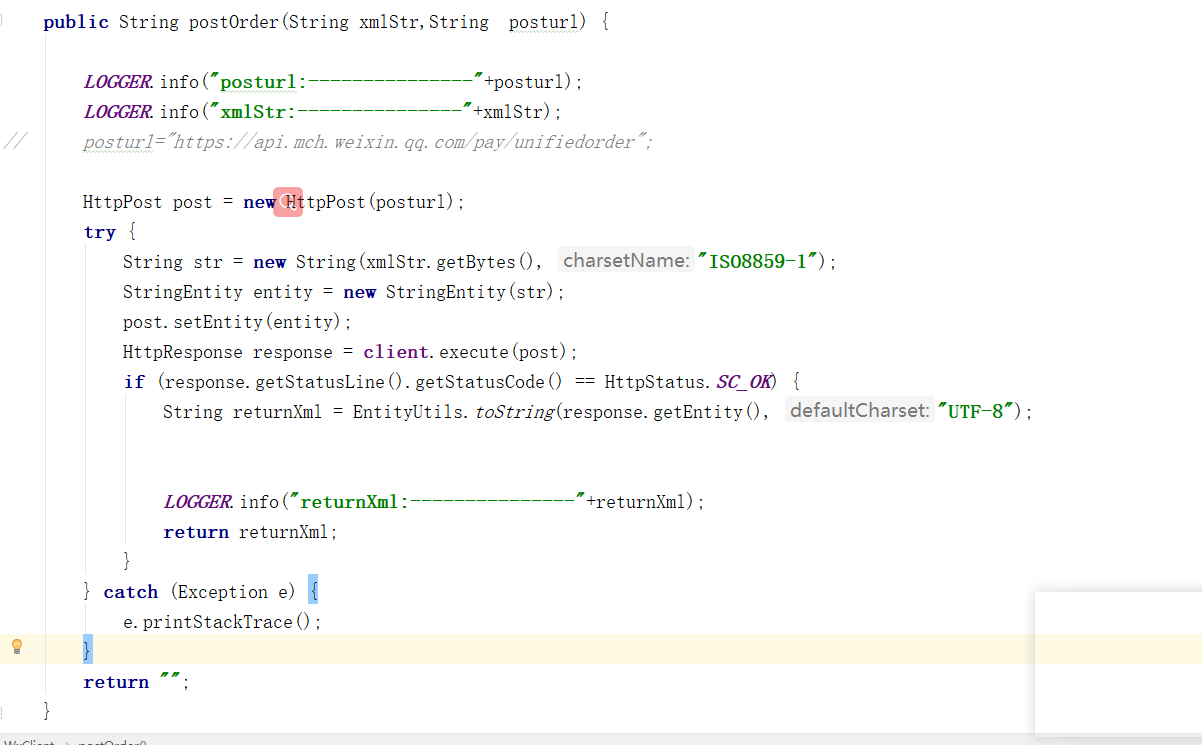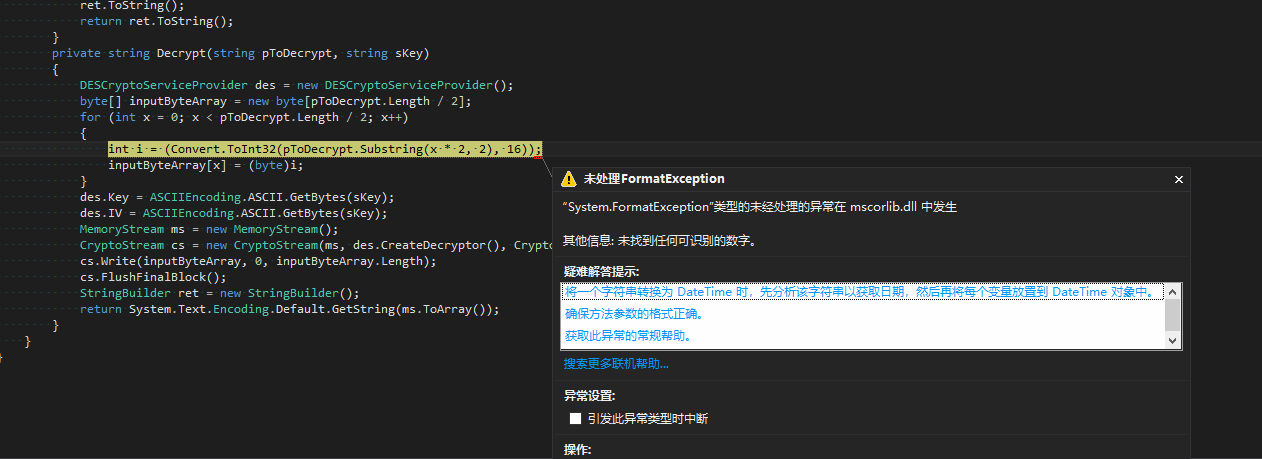可以将文章内容翻译成中文,广告屏蔽插件可能会导致该功能失效(如失效,请关闭广告屏蔽插件后再试):
问题:
I have a very annoying problem with long sums of floats or doubles in Java. Basically the idea is that if I execute:
for ( float value = 0.0f; value < 1.0f; value += 0.1f )
System.out.println( value );
What I get is:
0.0
0.1
0.2
0.3
0.4
0.5
0.6
0.70000005
0.8000001
0.9000001
I understand that there is an accumulation of the floating precision error, however, how to get rid of this? I tried using doubles to half the error, but the result is still the same.
Any ideas?
回答1:
There is a no exact representation of 0.1 as a float or double. Because of this representation error the results are slightly different from what you expected.
A couple of approaches you can use:
- When using the
double type, only display as many digits as you need. When checking for equality allow for a small tolerance either way.
- Alternatively use a type that allows you to store the numbers you are trying to represent exactly, for example
BigDecimal can represent 0.1 exactly.
Example code for BigDecimal:
BigDecimal step = new BigDecimal(\"0.1\");
for (BigDecimal value = BigDecimal.ZERO;
value.compareTo(BigDecimal.ONE) < 0;
value = value.add(step)) {
System.out.println(value);
}
See it online: ideone
回答2:
You can avoid this specific problem using classes like BigDecimal. float and double, being IEEE 754 floating-point, are not designed to be perfectly accurate, they\'re designed to be fast. But note Jon\'s point below: BigDecimal can\'t represent \"one third\" accurately, any more than double can represent \"one tenth\" accurately. But for (say) financial calculations, BigDecimal and classes like it tend to be the way to go, because they can represent numbers in the way that we humans tend to think about them.
回答3:
Don\'t use float/double in an iterator as this maximises your rounding error. If you just use the following
for (int i = 0; i < 10; i++)
System.out.println(i / 10.0);
it prints
0.0
0.1
0.2
0.3
0.4
0.5
0.6
0.7
0.8
0.9
I know BigDecimal is a popular choice, but I prefer double not because its much faster but its usually much shorter/cleaner to understand.
If you count the number of symbols as a measure of code complexity
- using double => 11 symbols
- use BigDecimal (from @Mark Byers example) => 21 symbols
BTW: don\'t use float unless there is a really good reason to not use double.
回答4:
It\'s not just an accumulated error (and has absolutely nothing to do with Java). 1.0f, once translated to actual code, does not have the value 0.1 - you already get a rounding error.
From The Floating-Point Guide:
What can I do to avoid this problem?
That depends on what kind of
calculations you’re doing.
- If you really need your results to add up exactly, especially when you work with money: use a special decimal datatype.
- If you just don’t want to see all those extra decimal places: simply format your result rounded to a fixed
number of decimal places when
displaying it.
- If you have no decimal datatype available, an alternative is to work
with integers, e.g. do money
calculations entirely in cents. But
this is more work and has some
drawbacks.
Read the linked-to site for detailed information.
回答5:
For the sake of completeness I recommend this one:
Shewchuck, \"Robust Adaptive Floating-Point Geometric Predicates\", if you want more examples of how to perform exact arithmetic with floating point - or at least controlled accuracy which is the original intention of author, http://www.cs.berkeley.edu/~jrs/papers/robustr.pdf
回答6:
Another solution is to forgo == and check if the two values are close enough. (I know this is not what you asked in the body but I\'m answering the question title.)
回答7:
I had faced same issue, resolved the same using BigDecimal. Below is the snippet which helped me.
double[] array = {45.34d, 45000.24d, 15000.12d, 4534.89d, 3444.12d, 12000.00d, 4900.00d, 1800.01d};
double total = 0.00d;
BigDecimal bTotal = new BigDecimal(0.0+\"\");
for(int i = 0;i < array.length; i++) {
total += (double)array[i];
bTotal = bTotal.add(new BigDecimal(array[i] +\"\"));
}
System.out.println(total);
System.out.println(bTotal);
Hope it will help you.
回答8:
You should use a decimal datatype, not floats:
https://docs.oracle.com/javase/7/docs/api/java/math/BigDecimal.html
回答9:
package loopinamdar;
import java.text.DecimalFormat;
public class loopinam {
static DecimalFormat valueFormat = new DecimalFormat(\"0.0\");
public static void main(String[] args) {
for (float value = 0.0f; value < 1.0f; value += 0.1f)
System.out.println(\"\" + valueFormat.format(value));
}
}
回答10:
First make it a double. Don\'t ever use float or you will have trouble using the java.lang.Math utilities.
Now if you happen to know in advance the precision you want and it is equal or less than 15, then it becomes easy to tell your doubles to behave. Check below:
// the magic method:
public final static double makePrecise(double value, int precision) {
double pow = Math.pow(10, precision);
long powValue = Math.round(pow * value);
return powValue / pow;
}
Now whenever you make an operation, you must tell your double result to behave:
for ( double value = 0.0d; value < 1.0d; value += 0.1d )
System.out.println( makePrecise(value, 1) + \" => \" + value );
Output:
0.0 => 0.0
0.1 => 0.1
0.2 => 0.2
0.3 => 0.30000000000000004
0.4 => 0.4
0.5 => 0.5
0.6 => 0.6
0.7 => 0.7
0.8 => 0.7999999999999999
0.9 => 0.8999999999999999
1.0 => 0.9999999999999999
If you need more than 15 precision then you are out of luck:
for ( double value = 0.0d; value < 1.0d; value += 0.1d )
System.out.println( makePrecise(value, 16) + \" => \" + value );
Output:
0.0 => 0.0
0.1 => 0.1
0.2 => 0.2
0.3000000000000001 => 0.30000000000000004
0.4 => 0.4
0.5 => 0.5
0.6 => 0.6
0.7 => 0.7
0.8 => 0.7999999999999999
0.9 => 0.8999999999999999
0.9999999999999998 => 0.9999999999999999
NOTE1: For performance you should cache the Math.pow operation in an array. Not done here for clarity.
NOTE2: That\'s why we never use doubles for prices, but longs where the last N (i.e. where N <= 15, usually 8) digits are the decimal digits. Then you can forget about what I wrote above :)
回答11:
If you want to keep on using float and avoid accumulating errors by repeatedly adding 0.1f, try something like this:
for (int count = 0; count < 10; count++) {
float value = 0.1f * count;
System.out.println(value);
}
Note however, as others have already explained, that float is not an infinitely precise data type.
回答12:
You just need to be aware of the precision required in your calculation and the precision your chosen data type is capable of and present your answers accordingly.
For example, if you are dealing with numbers with 3 significant figures, use of float (which provides a precision of 7 significant figures) is appropriate. However, you can\'t quote your final answer to a precision of 7 significant figures if your starting values only have a precision of 2 significant figures.
5.01 + 4.02 = 9.03 (to 3 significant figures)
In your example you are performing multiple additions, and with each addition there is a consequent impact on the final precision.




